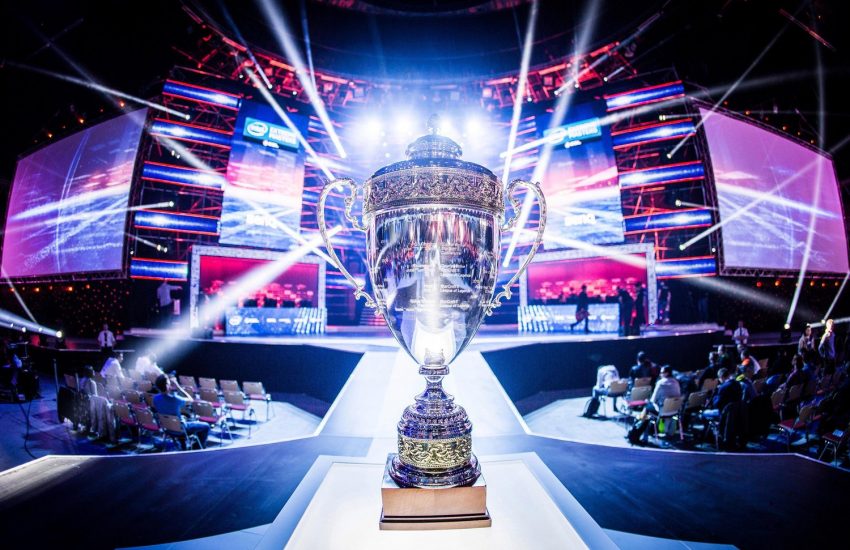In 2019, ESL began work on creating its own analogue of the franchise league for CS: GO. The tournament operator presented the teams with a preliminary version of the contract, which caused many questions from future participants, as well as criticism from Valve. Insider publishes copy of original agreement Yarek DeKay Lewis.
The original text of the contract included a clause prohibiting ESL Pro League members from playing in tournaments and competitions other than official Valve majors. Subsequently, the creators of the game themselves criticized this rule and published a blog called “Supporting Competition”, in which they openly declared their position against any such prohibitions. This forced the ESL to review the terms of the contract. Otherwise, the operator could lose the Valve license for the competition.
According to an insider, FACEIT and BLAST tried to sign similar agreements on exclusive cooperation with the teams, however, in light of Valve’s statement, tournament operators will most likely have to find a compromise.
Some points of the original ESL Pro League contract:
- The council for voting on league decisions will consist of 17 members: 16 team representatives and an ESL representative.
- The candidate for the league commissioners will be examined by the ESL and council members. It will be approved by a general vote.
- The tournament operator will have the right to veto issues that may “significantly affect the finances of the league”.
- The ESL will also be able to use the veto if the issue concerns “exclusivity conditions”, consent to the participation of teams in other leagues and changes to the league to ensure cooperation with Valve.
- Teams will receive 21.25% of gross income and 60% of profits in the first year. Funds will be distributed among participants according to a special matrix. This means that not all teams will receive an equal share.
- The share obtained will depend on the composition of the participants – the roster must have at least three players included in the top 500 of the ESL world rating.
- If the team does not put the squad on the tournament, it will lose 50% of its share, which will be evenly distributed among other participants.
- ESL will issue invitations to the tournament based on a personal world ranking. Teams will be able to decline a maximum of 3 out of 16 possible invitations, but not more than two within one calendar year.
- Any team that for any reason violates this rule will lose its entire share of revenue for the year.
- ESL will act as an advertising agency for teams.
- Teams will receive 85% of the revenue after the agent sells the collective sponsorship. ESL will retain 15%.
- Starting January 1, 2023, all Pro League teams must not participate in other CS: GO leagues and tournaments. We are talking about tournaments that are not sponsored by Valve and whose duration is more than 14 days. All Pro League teams must limit their days of active participation in tournaments to no more than 60 days per calendar year. During the league season (compiled according to a jointly agreed schedule), teams must not play in any other leagues or tournaments.[[These points caused Valve’s discontent and disputes with the teams. According to unconfirmed reports, they will be removed from the new version of the agreement – approx.]
According to an insider, in the new version of the agreement, ESL will divide its events into two types:
- Under the brand ESL Pro League guest teams will be speaking, who will sign long-term contracts with the operator. The company will not prohibit them from playing in third-party tournaments, but will introduce a system of rewards and restrictions in order to “encourage” them to pay attention only to the ESL Pro League.
- In parallel with the closed league, there will be a brand ESL Tour – It will include ESL, DreamHack and Intel Extreme Masters with a more open format for participants.
Possible Pro League participants are also conditionally divided into two categories: teams invited by the organizers themselves, and teams that must submit an application.
Invited teams:
- Faze clan, Natus vincere, Fnatic, Ninjas in pajamas, Team liquid, NRG Esports, Team vitality, mousesports, G2 esports, Complexity gaming, MIBR, ENCE eSports, Astralis, Cloud9.
Application Required:
- Team envy, Virtus.pro, Big, North, Reenegades, FURIA Esports.
Some of these teams have already confirmed their participation in the FACEIT B-site project. How they will combine their performance in different leagues and whether they can do it at all is unknown.

